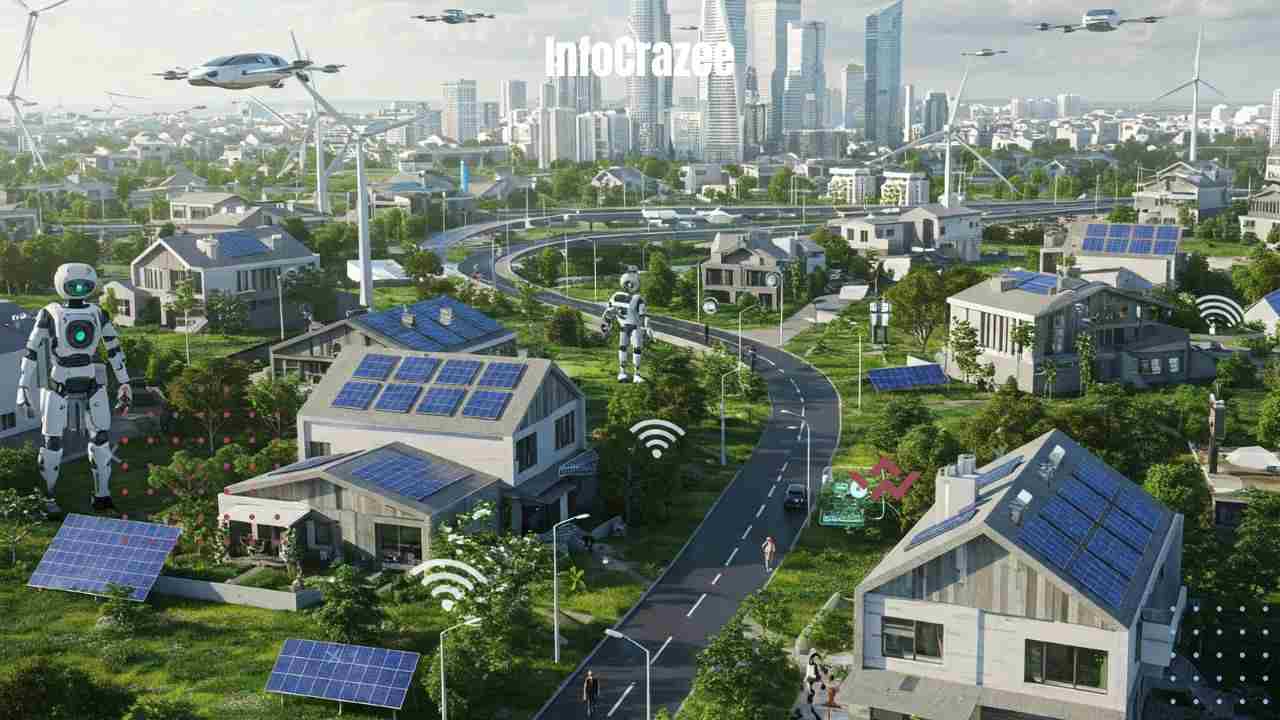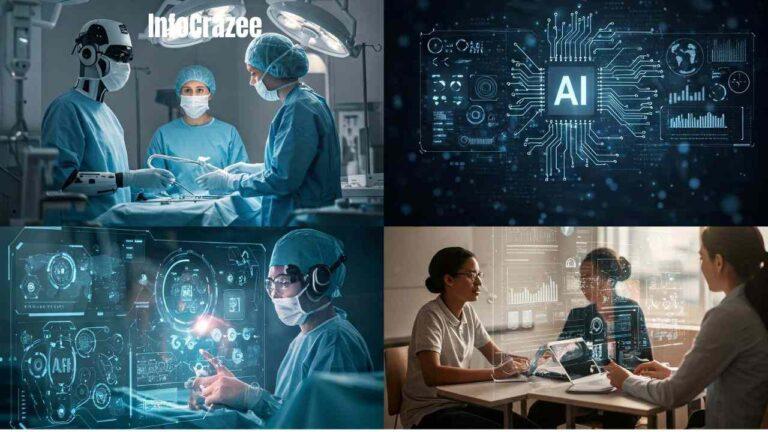Life in 2050: What the Future Holds with Cutting-Edge Technology
The future is coming fast, and technology is making huge leaps. By 2050, things we once thought were sci-fi will be part of our everyday lives. From self-driving cars to homes that understand your every need, the world of tomorrow will be smarter, cleaner, and more connected. Let’s take a look at the cutting-edge tech that will shape our future.
1. The Smart Home Revolution: Your Home Will Know You Better Than You Know Yourself
Imagine stepping into your house and having everything already set up just the way you like it. In 2050, your home won’t just be a place to live – it’ll be an extension of you.

What to Expect:
- Automated Living: Your home will adjust automatically to your preferences. Lights, temperature, music – it’ll all change based on your mood or time of day. Just getting home from work? Your house will know and set up a cozy atmosphere, from dimmed lights to your favorite playlist.
- Voice Control Everywhere: Whether it’s adjusting the blinds, setting the temperature, or even ordering groceries, you’ll control it all with your voice. Forget about searching for the remote or trying to find the right app — just ask, and it’ll happen.
- Personalized Comfort: The AI in your home will learn your habits and adjust settings even before you realize what you need. For example, if you tend to drink coffee right after you wake up, the coffee machine will start brewing before you even get out of bed.
Real-World Example:
Imagine your fridge suggesting recipes based on what you already have inside. Then, it guides you step-by-step through the cooking process, making meal prep easier than ever. Your house won’t just house you — it’ll work with you.
2. Transportation: Getting Around the Future Way
By 2050, travel will be more than just convenient. It’ll be a smooth, efficient experience with tech that’s designed to make everything faster and smarter.

What to Expect:
- Self-Driving Cars: Forget the days of navigating traffic. Self-driving cars will be the norm. These cars won’t just drive themselves; they’ll also communicate with other vehicles and infrastructure to avoid traffic, find the best routes, and keep you safe on the road.
- Flying Cars & Drones: Want to skip traffic entirely? Flying cars and drones will provide fast, efficient transport. Imagine hopping into an aerial taxi that takes you straight to your destination, completely bypassing road congestion.
- Sustainable Travel: Electric cars and solar-powered vehicles will replace traditional gas-powered ones, dramatically reducing our carbon footprint. Cleaner, greener travel will help create a more sustainable world.
Real-World Example:
Think about jumping into a self-driving car, inputting your destination, and then relaxing as the car takes you there. While you’re on your way, your car might even update you on the best route or recommend a detour to check out a new restaurant or event. Travel will be smarter, more efficient, and a lot less stressful.
3. Healthcare: Smarter Medicine for a Healthier World
In 2050, healthcare will be more personalized, precise, and accessible, thanks to advances in AI, biotechnology, and medical devices.

What to Expect:
- AI-Driven Diagnostics: With AI analyzing medical data, doctors will be able to catch potential issues earlier. AI will assist in diagnosing conditions faster and more accurately than ever before.
- Wearable Health Devices: In 2050, you’ll wear devices that monitor your health in real-time, alerting you to potential problems before they become serious. Whether it’s a smartwatch that tracks your heart rate or a patch that monitors glucose levels, health data will be at your fingertips.
- Telemedicine: Remote healthcare will be more common, allowing you to have virtual consultations with doctors from the comfort of your home.
Real-World Example:
Imagine a smartwatch that not only tracks your steps but also alerts you to changes in your vital signs, such as an irregular heartbeat or high blood pressure. These early warnings will help doctors intervene earlier, saving lives and improving outcomes.
4. The Rise of Robotics: A Helping Hand for Every Task
Robots won’t just be for factories in 2050 – they’ll be assisting with everyday tasks in your home, office, and even in healthcare.

What to Expect:
- Home Robots: Robots will help with chores like vacuuming, lawn care, and even cooking. Picture a robot that not only vacuums but also takes out the trash and folds your laundry.
- Medical Robots: In healthcare, robots will assist with surgeries, making procedures more precise and less invasive. They’ll also help in rehabilitation, providing personalized care for patients.
- Delivery Drones: Getting your groceries or packages delivered will be faster than ever, thanks to drones that can zip your orders right to your door.
Real-World Example:
Picture having a robot assistant that takes care of all the household tasks you don’t have time for, from cleaning to cooking. Not only will you save time, but you’ll also have more energy for the things you truly enjoy.
FAQs
1. Will smart homes really be able to understand my preferences?
Yes! By 2050, smart homes will be powered by AI that learns your preferences over time. The more you interact with your home, the better it will get at adjusting to your needs, creating a truly personalized environment.
2. How safe will self-driving cars be?
Self-driving cars are designed to reduce human error, which is the leading cause of accidents. By 2050, these cars will be equipped with advanced sensors, AI, and communication systems that make them incredibly safe — and much less prone to accidents than human-driven vehicles.
3. How will healthcare improve in the next 30 years?
In 2050, healthcare will be more proactive than reactive. AI will assist in diagnosing diseases early, wearable devices will monitor your health in real-time, and telemedicine will make healthcare more accessible. All of this will lead to better health outcomes and fewer hospital visits.
The future of 2050 promises a world where technology isn’t just about convenience – it’s about improving every aspect of our lives. From smarter homes to better healthcare, it’s a future that’s built to help us thrive.






